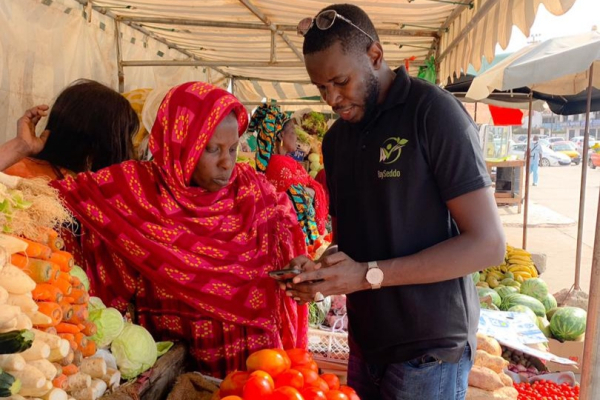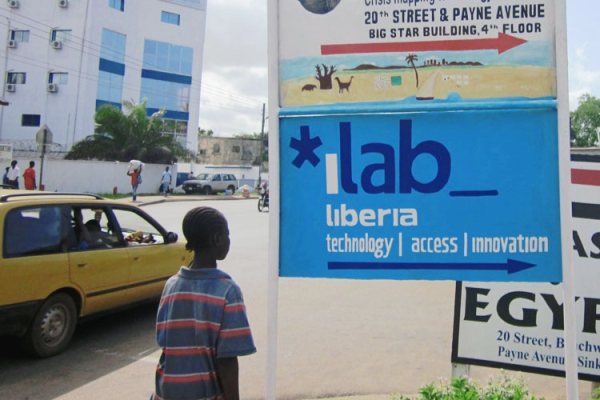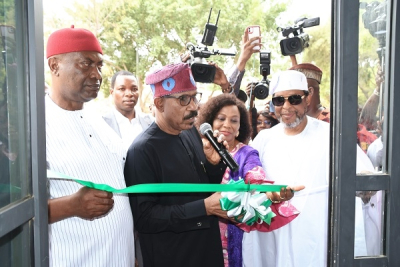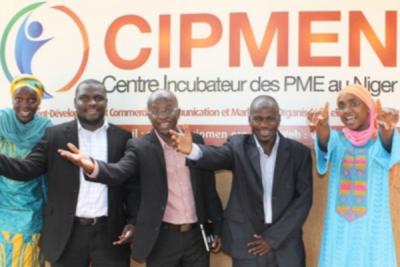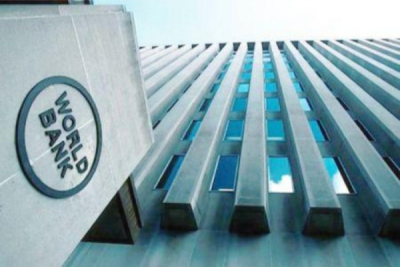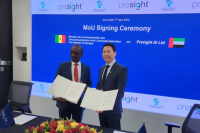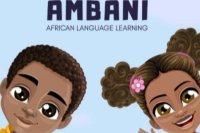Small-scale farmers, for various reasons, are sometimes unable to sell their crops. To improve their conditions while supplying fresh products to those who need them, a tech entrepreneur has set up a tailor-made solution in Senegal.
Bayseddo is an agritech solution developed by a Senegalese startup. It is a business-to-business e-commerce platform that connects farmers who need financing with individuals who want to invest in their farms. By investing in farming projects, investors take shares valid for 12 to 24 months.
"When you leave one city for another on the African continent - from Dakar to Saint-Louis in Senegal for example- we [always] see roadsides littered with thousands of hectares of undeveloped farmland while news about famine, unemployment, or food imports abound. Whereas in Europe, when you leave a city for another (Paris - Havre), roadsides are littered with thousands of hectares of exploited, eye-catching green land. The alternative agriculture financing initiative Bayseddo 2.0 was born from that observation," said Mamadou Sall, founder of Bayseddo.
The solution has an Android app, which is not on PlayStore. Through the app and the web platform, users can register to access the services Bayseddo offers. Farmers can access financing through the startup's partner banks. Merchants can get fresh products at competitive prices, have them delivered timely, and pay via mobile money or cash on delivery.
The solution is always looking for ways to deliver more impacts in Senegal, the sub-region, and the African diaspora as a whole. Thanks to that approach, it has distributed more than 4,500 products and has over 275 resellers and partners with some 530 farmers.
Its assumed mission is to set an inclusive partnership framework allowing Africa to feed itself. In November 2018, It was selected among forty Senegalese startups for government funding via a funding vehicle designed to develop the local tech ecosystem. With $2 million earmarked for the entire cohort, Bayseddo was awarded $100,000 to support its growth.
Adoni Conrad Quenum
iLab Liberia promotes technology and innovation in West Africa. It helps build the technical capabilities of the Liberian youth and promotes ICT for the country’s development.
iLab Liberia is a tech training center and collaborative workspace based in Monrovia, the capital of Liberia. Founded in 2011 by digital champion Kate Cummings, iLab Liberia aims to build the technical capacity of Liberians and promote the use of information and communication technologies (ICTs) for social and economic development in the country.
Since its inception, the center has offered over 300 training courses and events to more than 3,500 students in areas such as web and mobile development, open data and visualization, data collection and analysis, geospatial and participatory mapping, physical computing and networking, coding, and other skills focused on open source technologies and relevant solutions.
It also offers entrepreneurship programs to help young Liberians start their technology businesses, as well as shared workspaces for technology professionals and innovators. In addition, it provides technology customization services for projects across West Africa, including mobile platforms for data collection and analysis, online reporting platforms for citizen engagement and good governance initiatives, geospatial mapping, and web and mobile solutions.
The center has overseen the customization and implementation of surveys with more than 30,000 respondents in urban and rural settings. It trained dozens of enumerators and helped data analysts working for governments and nonprofit organizations make the best use of the results.
For its previous activities, iLab Liberia worked closely with institutions such as USAID, World Bank, GIZ, Humanity United, Natembea, mySociety, and National Democratic Institute, among others.
In collaboration with Accountability Lab Liberia, it co-manages iCampus Liberia, a shared innovation, co-working, and community space dedicated to tech entrepreneurs and organizations. The campus it manages is both a physical and virtual space providing ICT and entrepreneurship training to the youth as well as a hub for networking and innovation. It also serves as a focal point for working with women, minorities, and digital changemakers, encouraging inclusion and promoting equitable access to digital opportunities.
Melchior Koba
According to UNESCO, investing in science, technology, and innovation (STI) is essential for economic development and social progress. But, it is all the same important to ensure access to the right information about the sector to enable effective and appropriate usage.
The Federal Government of Nigeria, on Tuesday, April 11, officially inaugurated the Nigerian Science, Technology and Innovation Television called "NSTI TV".
According to Minister of Science, Technology, and Innovation, Dr. Adeleke Olorunnimbe Mamora (photo, center), NSTI TV is a multilingual science channel that will broadcast content in English, Yoruba, Igbo, and Hausa and will be accessible on any internet-enabled device.
“As part of our plans for ease of access to information, we have developed an indelible and robust Television that is Terrestrial, Satellite, and Internet-Based Science Over-The-Top (OTT) TV channel dedicated to Science and Technology knowledge dissemination, with a strong commitment to spreading scientific awareness, especially with Nigerian perspectives, ethos, and cultural milieu,” the government official said.
Over the past few years, Nigeria has implemented several actions to advance STIs and integrate them into Nigerians’ daily habits. According to Adeleke Mamora, if effectively exploited, they can propel Nigeria into the list of the top 20 economies in the world by 2030.
This television station was thus introduced as part of the Implementation of Executive Order No. 5 For the Development Of Local Content In Science, Engineering, And Technology. To this end, it will focus on Nigeria's contributions to STI by publishing the latest results and products of all research institutions and the latest developments in STI in Nigeria and the world.
According to the Director General of the National Space Research and Development Agency (NASRDA), Dr. Halilu Shabba, NSTI TV is a milestone for the agency as 25% local content was used in the creation of the channel.
Samira Njoya
By providing workspaces, training, mentoring, and funding opportunities, CIPMEN has enabled many startups to turn their innovative ideas into successful businesses.
CIPMEN, Niger’s SMEs Incubator Center, is an ambitious and innovative business incubator that aims to stimulate innovation and entrepreneurship in Niger. The incubator, founded in 2014, has become one of the key players in the African startup ecosystem.
Led by Maman Rouffahi Koabo, an experienced IT consultant and agritech entrepreneur, it offers an extensive range of services to entrepreneurs, including workspaces, training, and mentoring. It also connects them to investors, partners, and potential customers. Startups selected to participate in its incubation program can receive personalized support to grow their businesses.
The incubator organizes events such as Café Numérique -an event initiated to discuss issues faced by local fintech startups, Hack the Goals Niger -the Niger chapter of hackathons launched by Belgian development agency Enabel to help identify innovative solutions for the achievement of sustainable development goals, and eTakara.ne -a national digital competition that aims to identify and support digital talent.
It recently issued a call for applications for a program aimed at supporting innovative projects in renewable energy, agribusiness, environment, and information and communication technologies. It also implemented several projects like CODELOCCOL, a coding academy, and CIPMEN EXPORT, a project aimed at funding agribusiness and manufacturing businesses with high export potential and good financial health.
It carries out its activities in partnership with institutions, governments, and organizations. Its partners include the Nigerien government, the World Bank, the French Development Agency (AFD), TOTAL, and GAMA Informatique.
CIPMEN has incubated 222 companies, trained over 7,901 people, and organized over 30 events. Companies such as AgriPart, Tout Azimut, City Links, and Niger Digital have all benefited from its expertise and resources to develop their businesses.
Melchior Koba
The solution was set up by local tech entrepreneurs to compete with large commercial groups in the b2b segment.
Kuzlo is a business-to-business e-commerce solution developed by an Egyptian startup. It allows retailers to source their products from wholesalers at competitive rates.
The Alexandria-based startup behind the solution was founded in 2021 by Ayman Elgarem, Mohamed Gebril, Yehia Elsaka, and Tarek Gamal. It aims, among others, to transform traditional retail into a digitally connected network. To that end, it has raised about $100,000 to accelerate its growth and develop new products.
“Kuzlo is helping small retailers shift into the new future challenges and support them to strengthen their business value using new digital trends of e-commerce and e-finance in the near future,” explained Ayman Elgarem in 2021.
Through its mobile app -available for Android and iOS devices, users can register for Kuzlo accounts and access the network of wholesalers and suppliers. The network features more than 10,000 fresh, dry, and frozen products while guaranteeing product availability, on-time delivery, and competitive prices.
Kuzlo claims more than 50 wholesalers and suppliers, which facilitates negotiations and guarantees good deals. It has more than 1,000 retailers in the three cities where it is present. It caught investors’ attention early but, its growth started recently. The Android version of its mobile app has been downloaded more than a thousand times
Adoni Conrad Quenum
Kenya wants to become a reference in digital transformation in Africa by 2027. To finance the projects it plans for that purpose, it seeks the support of the World Bank and private investors.
The World Bank will provide $390 million to finance the construction of Kenya’s digital infrastructure, a release dated April 5, 2023, informs.
According to the Bretton Woods Institution, the financial resources will fund the first phase of the Kenya Digital Economy Acceleration Project. That first phase focuses “on expanding access to high-speed internet, improving the quality and delivery of education and selected government services, and building skills for the regional digital economy.”
“Broadening access to digital technologies and services is a cross-cutting pathway to accelerate economic growth and job creation, improve service delivery, and build resilience,” said Keith Hansen, World Bank country director for Kenya, Rwanda, Somalia, and Uganda.
A few weeks ago, Minister of Digital Economy Eliud Owalo announced that Kenya was in talks with the World Bank to obtain $600 million to fund its Digital Superhighway Project.
Phase 1, which has been financed, will run from 2023 to 2028. Phase 2 will run from 2026 to 2030, focusing on building a secure, data-driven environment to enhance digital service delivery and innovation for the regional digital economy.
According to Keith Hansen, the Kenya Digital Economy Acceleration Project aims to make the country's growth more equitable by reducing disparities in digital skills and connectivity, and expanding the digital marketplace.
Samira Njoya
Senegal, through its digital strategy, aims to become an innovative leader in Africa by 2025. However, several projects are still lagging, two years before the deadline. Therefore, the country is multiplying partnerships to accelerate its implementation.
Last Saturday, the Senegalese Minister of Communication Moussa Bocar Thiam (photo, left) announced a memorandum of understanding with the UAE company Presight ai LTD.
On Twitter, the government official indicated that the new partnership aims to support Senegal in the implementation of various projects, namely digital identity and addressing and tax digitization projects.
Under the newly signed MOU, Senegal will receive financial support for the implementation of the digital projects mentioned. The digital addressing project was initiated in February 2021 to map the entire national territory and assign a digital address to each geographical location.
The digital identity project, launched on June 24, 2022, aims to provide an operational, reliable, secure, and accessible digital identity to Senegalese users by 2024. As for the digitization of taxes, the project was launched several years ago, to allow online tax filing and payment.
On Monday, April 10, 2023, Moussa Bocar Thiam also signed a memorandum of understanding with the company PANAMAX in Dubai. That MoU finances the development of a digital post solution and covers the company’s participation in the digital week "SENEGALCONNECT" - May 16-20, 2023 in Dakar- organized by the Ministry of Communication, Telecommunications, and Digital Economy.
Samira Njoya
Cameroon, like several African countries, has officially adopted online visas. The system announced months ago will become effective in a few days.
Starting from April 30, 2023, applications for Cameroonian visas will be exclusively made online, announced Minister of External Relations, Lejeune Mbella Mbella, through a release issued on Thursday, April 6.
According to the release, regardless of the applicant’s geographic location, visa applications must be submitted on www.evisacam.cm following established administrative procedures. After the application, visa fees will be paid via various methods, namely Mastercard, Visa, Paypal, Mobile Money, Orange Money, Moov, Wave, Safaricom, Airtel, Vodacom, and Africell.
An online visa authorization will then be issued to the applicant who will be able to go either to a diplomatic mission or to a border post to retrieve the visa within three days. In this final stage, applicants’ biometric data, fingerprints, facial images, etc., will be collected.
The Cameroonian government received the equipment for the project from Abidjan-based company Impact Palmarès R&D SAS in June 2022. The bill updating the legal framework was submitted to the National Assembly on July 2, 2022, and the decree updating the conditions of entry, stay, and exit of foreigners in Cameroon was signed last month by the President of the Republic, Paul Biya.
The reform prescribed by the President of the Republic is the first step toward the digital transformation of Cameroon’s diplomatic apparatus. According to Minister Lejeune Mbella Mbella, "the e-visa system [aims] to make Cameroon a more attractive destination, address the grievances of the Cameroonian diaspora and upgrade the consular system to international standards.”
Samira Njoya
In most African countries, foreign languages -French, English, Spanish, etc…- are the working languages. So, mother tongues are seldom taught. As a result, the number of children speaking or even understanding those mother tongues has shrunk and continues to shrink. In recent years, however, the government and even private actors are devising solutions to that issue. This includes Ambani.
Ambani is an edtech solution developed by a South African startup. It allows users to learn several local languages such as Sizulu, Sisixhosa, Sepedi, Setswana, Tshivenda, or Swahili by playing games or watching specific videos. The startup that launched the solution was founded, in 2018, by Mukundi Lambani and Nkulu Lambani. Based in Johannesburg, its goal is to provide interactive native language instruction to K-12 learners.
“Ambani is here to help educators find the right blend of tools, platforms, and components to fit both learners and teachers' needs,” the startup informs on its platform.
The solution has a mobile app accessible on Playstore and Appstore. Once registered, users can access the content available on the platform such as slides, videos, or even custom-made games that facilitate learning.
Ambani also offers online tutoring for children over six years old. These are individual lessons given by qualified language teachers. The courses are accessible with monthly subscriptions and learners can buy specific lessons to fill gaps in their learning if they don’t want to commit to monthly subscriptions.
The startup also uses augmented reality to make learning fun and especially experiential. "When you view the books through the app on your phone, they COME ALIVE in 3D," it says.
The Android version of its mobile app has been downloaded more than 10,000 times, according to Play Store data. In 2021, Ambani was distinguished at the MTN Business App Year Awards. It won awards for the best educational solution, best gaming solution, best South African solution, and best solution of the year. The edtech received $68,000 and plans to introduce other African languages such as Yoruba, Shona, and Xitsonga.
Adoni Conrad Quenum
Jokkolabs is a model in the African entrepreneurial ecosystem. Through its programs, events, and partnerships, it actively contributes to creating a dynamic and sustainable entrepreneurial ecosystem on the continent.
Jokkolabs is a tech innovation and co-working network for entrepreneurs and startups. The network, created in 2010, has become a major player in the African entrepreneurial ecosystem. It was founded by Karim Sy, a Senegalese entrepreneur, to stimulate innovation and contribute to growth on the continent.
The first Jokkolabs was opened in Dakar, Senegal in 2010, and since then the network has grown rapidly. Presently, it has several centers in West Africa, Central Africa, and even France. The network offers shared workspaces, training, events, and mentoring services for startup entrepreneurs in Africa and the African diaspora.
The Jokkolabs model is based on collaboration and knowledge exchange. Its centers are designed to encourage interaction and cooperation between entrepreneurs, which fosters the creation of a dynamic and innovative ecosystem. Members have access to high-quality resources and services, as well as a valuable network of contacts that can help them grow their businesses.
The network organizes regular events, talks, and a wide range of activities. These include Jokkokids launched -in 2016 in collaboration with Help the Street Children- to stimulate creativity and collaboration among children aged 6-12 and Jokkofood which is a national food innovation competition geared towards young entrepreneurs.
In collaboration with Make Sense, Jokkolabs also launched Jokko Sense, a business breakfast for entrepreneurs with socially and environmentally impactful initiatives. It represents, coordinates, and federates the Global Entrepreneurship Week in five countries and organizes coding training sessions for teachers as part of the Africa Code Week so that they can train young people aged 8-18.
For its activities, Jokkolabs partners with several key players in the African entrepreneurial ecosystem. Its partners include Google, tuition-free coding academy Simplon, and French banking group Société Générale. These partnerships allow Jokkolabs to strengthen its impact and continue to offer high-quality programs and events to entrepreneurs.
More...
The e-commerce industry has grown exponentially in recent years and the number of online marketplaces has followed suit. The marketplaces that were developed in the wake of the e-commerce boom include DizzitUp, an African start-up and finalist of the Ecobank Fintech Challenge 2022. The platform has great ambitions and wants to become the African alternative to Alibaba. During the Lomé chapter of the Africa Fintech Tour, Togo First interviewed its CEO, Solofo Rafeno, to learn more about this marketplace which is getting popular by the day in Benin, Togo, and Madagascar.
Togo First: Could you tell us what DizzitUp is about?
Solofo Rafeno (SR): DizzitUp is an online marketplace that offers African SMEs access to financing solutions to develop their activities. The start-up also helps these businesses increase their revenue by providing an online store that enables them to showcase their products and services to locals and the African diaspora, which is constituted of over 40 million individuals.
DizzitUp is focused on essential goods and services sold exclusively by African companies in 6 categories: food, renewable energy and construction, health, education, tech (phones, computers & internet), and shortly, new decentralized financial services (DeFi).
As a result, DizzitUp enables the digital and financial inclusion of African VSEs/SMEs while bringing them additional revenues.
In 4 months of operation, DizzitUp Marketplace has registered 150 merchants and we plan to exceed 1,000 merchants in Togo, Benin, Madagascar, and Ivory Coast by the end of 2023.
Togo First: What are the main consumer profiles targetted by DizzitUp?
SR: DizzitUp buyers are divided into two main groups: locals that buy for their consumption and members of the African diaspora -more than 40 million individuals- that buy for their relatives based in Togo, Benin and Madagascar to date, and soon in Côte d’Ivoire.
Togo First: How does your marketplace address trust issues?
SR: 80% of the African economy is made up of informal small and medium enterprises (SMEs). To encourage trust between merchants and consumers, one solution is to carefully select merchants, verify them, and focus on essential products and services such as food, self-sufficient solar power equipment, building materials, phones, computers, and health and education services.
DizzitUp field teams verify that the stores have physical addresses and offer products that meet our criteria. We then take pictures and videos and only selected products are posted on our platform.
Also, since logistics is crucial to guaranteeing service quality, our platform offers an extra service: delivery, which is carried out by independent deliverymen.
Togo First: How are the deliveries made?
SR: Our main aim is to always boost the activities of our [registered] merchants. So, we prefer buyers picking their products directly from stores so that the flow of customers can be increased. Package pickup is the default choice but, each merchant can suggest delivery services, which are offered by local DizzitUp partners.
Let’s say for instance that a relative living in Kara buys on the platform and pays using TMoney or Flooz, the beneficiary, a family member in Lome, can come and pick up the goods at the store in Lome or the goods can be delivered by DizzitUp's partner.
Another case is the recurrent purchase of food baskets, "FoodBox", by a Togolese living in New York for his relatives living in Lome. Once the order is paid via Visa or Mastercard, the relatives living in Lome can pick up the goods at the selling store or have them delivered. The merchant is immediately paid by DizzitUp -via TMoney or Flooz or by bank transfer- after the goods are delivered. It should be noted that for any order exceeding CFA30 000, there is free delivery anywhere within the Greater Lome region.
Togo First: You have a Blockchain-based strategy. Do you think that payment methods such as crypto-currencies can be game-changers for marketplaces like yours in Africa?
SR: It is important to note that blockchain is not a payment method in itself, but rather an infrastructure similar to Swift.
Currently, our marketplace accepts Visa and Mastercard international bank cards and mobile money from seven French-speaking countries in West Africa.
We will soon launch our DizzitApp application, based on the Blockchain infrastructure, allowing the diaspora and young urban Africans to pay in Bitcoin and other crypto-currencies knowing that merchants will still be paid in local currency, FCFA, and Ariary for Madagascar. This third means of payment on DizzitApp will allow those with digital assets to use part of their assets to support their families back home with their needs (buying them food, paying school fees and medical procedures, etc.).
Cryptocurrencies are becoming a global medium of exchange with 200-400 million users, including over 40 million in Africa. These people will soon be able to use their cryptocurrency assets to buy essential goods such as food for their consumption or their families in other African countries
Togo First: What do you think of regulations, notably those related to crypto-currency use?
SR: Togo is the second African country with the largest number of crypto-currency users after Nigeria, which represents huge opportunities for the African economy.
Decentralized blockchain networks and associated crypto-currencies are an opportunity for emerging countries. They can allow African countries to accelerate intra-continental trade and facilitate the financial inclusion of VSEs/SMEs and citizens as mobile money services have done for a decade.
But all these new technologies can only be beneficial to businesses and citizens if there is a clearly defined regulatory framework that is regularly amended over time.
Regulators have realized that there is a need for this regulatory framework. We are eagerly expecting them to comply with them to sustain our investments and boost our merchants’ activities.
Togo First: Why did you choose Togo as your base? Do you think that Togo can accelerate the deployment of your startup in the sub-region?
SR: We created our first subsidiary in Togo, which is a real financial hub in the sub-region. We chose to set up here in Togo because the country has a legal infrastructure and a favorable business environment that attracts many financial institutions. The presence of Ecobank's global headquarters in Lomé was also a decisive factor.
Despite our start-up status, they welcomed us into their multinational division. This partnership allowed us to integrate their payment gateway to manage bank cards worldwide and mobile money in 7 countries in the sub-region.
As a result, we were able to create our subsidiary in less than a month, which is an important comparative advantage.
Togo First: You were one of the finalists of the annual competition organized by your partner Ecobank. Was the initial partnership a decisive factor in that selection?
SR: Our partnership with Ecobank was not the decisive factor in our selection in the competition, as other start-ups also had significant partnerships. However, our ambition to expand in 21 countries, of which Ecobank is absent in only two, and our vision and ambition to be an economic player impacting the VSE/SMEs in Africa gave us a definite advantage.
We were one of the six finalists, selected among 700 startups from 59 countries, in the Ecobank Fintech Challenge 2022.
Togo First: You have already raised venture capital funds once. Do you intend to raise additional funds?
SR: Indeed, DizzitUp has already managed to raise $340,000 in funding from 44 individual investors, called "business angels". About a third of these investors are Africans living in Africa or Europe. The funds raised helped develop the start-up and its technology platform over 3 years.
The company is currently planning a second round of $3 million in equity to finance its expansion in Côte d'Ivoire and Nigeria and to develop the new decentralized finance services for VSEs/SMEs merchants of DizzitUp Marketplace.
For this new round, DizzitUp aims to attract private African investors for about 20% of the total amount sought and international investment funds (VCs, international institutions, and corporate funds) for the remaining.
Togo First: What are your future expansion plans?
SR: Regarding our plans, we have decided to strengthen our presence in Madagascar, Togo, and Benin in 2023 and launch a subsidiary in Côte d’Ivoire. We also plan to expand in Nigeria, in 2024, to consolidate our position in West Africa.
I am convinced that Nigeria is not only Africa’s economic driver but also the key to success for a pan-African expansion. No one can claim to be a pan-African company without being present and operational in Nigeria.
Togo First: What are your strategies to achieve those plans?
SR: Our marketplace model is quite simple: purchases are proportional to the number of merchants and products listed. The more offers we have, the more accounts are created, because people can buy what they want. We invest in advertising for merchants and have already made sales in 2022. One of our competitive advantages beyond our decentralized payment infrastructure is our ability to attract merchants by combining digital and on-ground approaches.
We always start with a physical presence approach, deploying teams on the ground to recruit merchants. We also have student recruiters and an incentive system to encourage recruiters, who are also marketing managers for merchants. We provide full free support to merchants, including creating visuals, photos, and videos that we post on Facebook. Recruiters become marketers for our merchants.
Interview by Fiacre E. Kakpo
In recent years, Senegal, like most African countries, has accelerated its digital transformation. To successfully implement that transformation, the country is relying on support from valued partners like the World Bank.
The World Bank recently approved a CFAF91 billion ($150 million) to support Senegal in the implementation of its Digital Economy Acceleration Project (PAEN). A financing agreement was signed to this effect on Thursday, April 6, between Mamadou Moustapha Bâ (photo, right), Senegal's Finance Minister, and Keiko Miwa (photo, left), Director of the World Bank Regional Office for Cape Verde, Gambia, Guinea-Bissau, Mauritania, and Senegal.
"For the population’s benefit, it is essential to leverage digital technologies in critical sectors such as health where digital solutions, including electronic medical records, telemedicine, and immunization campaign management can have a tangible impact," said Keiko Miwa after the agreement was signed.
According to the Finance Minister, the funds will help improve the legal, regulatory, and institutional frameworks governing the digital economy. It will support the digital transformation of the public sector by strengthening the technical foundation and e-government services. It will also promote digital adoption by improving digital literacy and skills -particularly among women and youth- and increasing access to health information to improve the delivery of health services.
PAEN is the first axis of the Plan for an Emerging Senegal (PSE) adopted in 2014 by the government to make Senegal an emerging country by 2035.
Samira Njoya
WenakLabs is a key player in Chad's entrepreneurial ecosystem. By helping innovative technology start-ups succeed, it contributes to the economic and social development of the country while stimulating innovation and creativity.
In the budding Chadian entrepreneurial ecosystem, tech hub WenakLabs is at the vanguard of innovation and creativity. The N’Djamena-based hub offers incubation, mentorship, and financing opportunities to innovative startups and helps individuals and businesses transform their ideas into flourishing companies.
It was born, in 2014, from the collaboration of Chadian bloggers, the French platform Mondoblog, the local network JerryClan Tchad and tech entrepreneur Abdelsalam Safi- who is currently the CEO of WenakLabs. Since then, it has worked closely with local and international partners such as AfriLabs, Oxfam, the French Institute, Moov Africa, Sahel Innov, and UNICEF to provide resources and tools to help Chadian entrepreneurs launch and grow their businesses.
To encourage youth entrepreneurship, WenakLabs provides innovators with a fab lab and a media lab. The fab lab is an open-access digital production space, where digitally controlled machines are made available to the general public for the design and creation of physical objects following an open-space collaborative work model. This place is open to young people who want to acquire skills to quickly transform their ideas into physical prototypes.
The media lab provides an environment for incubatees and project leaders to communicate innovatively and effectively by using new technologies to process, visualize and share information. It also provides a means to disseminate reliable and engaging information to inspire communities to action.
The tech hub claims some 120 startups incubated and 70 projects developed in Chad. Its achievements include ZereSoft, a platform that aims to modernize agriculture and the rural world with 2.0 tools, DaTchad, a data journalism agency project, and Nomad Learning, an SMS-based learning platform.
The incubator regularly organizes programs and events such as the Startup Weekend N'Djamena and DENE MAGIC, a program held in 2022 that aims to provide digital skills to women to bring them closer to decent jobs. WenakLabs also advises, trains, and coaches socioeconomic and digital development actors in the country.
It strives to foster diversity and inclusion in the Chadian entrepreneurial ecosystem. It also promotes equal opportunities for all entrepreneurs, whether they are men or women, novices or experienced, regardless of their social background.
Melchior Koba
Nigeria plays a key role in the African entrepreneurial ecosystem. To consolidate this position, the country is staking resources to further stimulate innovation, create jobs and promote economic growth.
Muhammadu Buhari (photo, left), the outgoing president of the Federal Republic of Nigeria, inaugurated the National Council for Digital Innovation and Entrepreneurship (NCDIE) on Wednesday, April 5.
The NCDIE, chaired by President Buhari, has 13 other members and its mission is to promote the development of the country's digital economy and create an enabling environment for entrepreneurs to flourish.
The council will also oversee the implementation of the Nigeria Startup Act 2022, a law enacted last December to stimulate the growth of innovative startups and small and medium enterprises (SMEs) in the country.
“The law, which was developed as part of a collaborative approach between the Office of the President and the Ministry of Communications and Digital Economy, with support from the technical ecosystem, provides incentives and support to start-ups, such as tax breaks, access to finance, ease of doing business, intellectual property protection and participation in government procurement,” said Muhammadu Buhari.
Nigeria's start-up ecosystem still faces significant challenges such as access to finance and the high cost of creating original products. Despite these obstacles, Nigeria has been at the forefront of startup growth in Africa in recent years with more than $4 billion raised between 2019 and 2022, the president reported.
Thus, the implementation of the Nigeria Startup Act will be an important step in addressing these challenges and promoting the growth and inclusiveness of the national startup ecosystem. According to President Muhammadu Buhari, this will help consolidate and develop the gains made in the digital economy.
Samira Njoya


